Erin Leigh studied public relations, advertising and applied communication at Western Michigan University. She came to China after graduating from college. She has been living in Shanghai for over five years, working in PR and marketing, before co-founding Spare Leash. Erin has Oliver (labrador mix), Betty (mini schnauzer), and Max (terrier mix). They used to be foster animals, but she ended up adopting them. Erin usually fosters one more dog every month. She also rescues kittens; she bottle-feeds them and looks after them while searching for adopters.
Spare Leash is dedicated to making life easier for pets and pet owners by providing loving and trustworthy pet sitters in Shanghai. Their services are safe, reliable and cage free. The company was founded in Shanghai, in 2016. In the same year, Spare Leash was awarded by Time Out Love Shanghai for Lifestyle Service of the Year.
How Spare Leash started?
Elsa: It began in 2016 when I wanted to adopt a dog from the street in Shanghai. I was still a student, and I was going traveling for a whole month. None of my friends could take care of him. Finally, I didn’t adopt this dog. However, I started to think how we can all help each other looking after pets when we travel. I had an idea, and I spent a few months thinking about Spare Leash and how I can make that happen. I had mutual friends with Erin. She was facilitating pets’ adoptions in Shanghai.
Erin: One day, Elsa texted me out of the blue, saying: “I need to talk to you. Meet me for lunch”. We met at one of my favorite restaurants, Kommune. Elsa told me about her idea. It was also a part of her university project.
Elsa: I had a class called Entrepreneurship, and that’s how I started to look at it from a business perspective. My initial idea was a pet hotel, but I wasn’t 100% happy with that and kept on brainstorming. I went to Australia for a month, and because I didn’t adopt the dog, I was thinking about it during the whole trip. I was doing my research, writing down my ideas and a business plan. When I came back, I met Erin.
Erin: Elsa nearly had a business plan and the avenue laid out, as well as the name and the logo. Right away I said: YES. The very next day we were in my living room, my three dogs were running around, and we were starting the business. It was around early April. I had just quit my job in PR.
Elsa: I was in the last semester of my Bachelor’s degree majoring in business. I had in my final exams. My final thesis was about the WeChat business, so I was going to many business events and learning from hands-on entrepreneurs.
Erin: We first built a website, which took a month. Then we had a launch party – a charity event co-organized with Best Friends China.
Elsa: We got our first client during this event. The first interviews with sitters happened in Erin’s apartment.
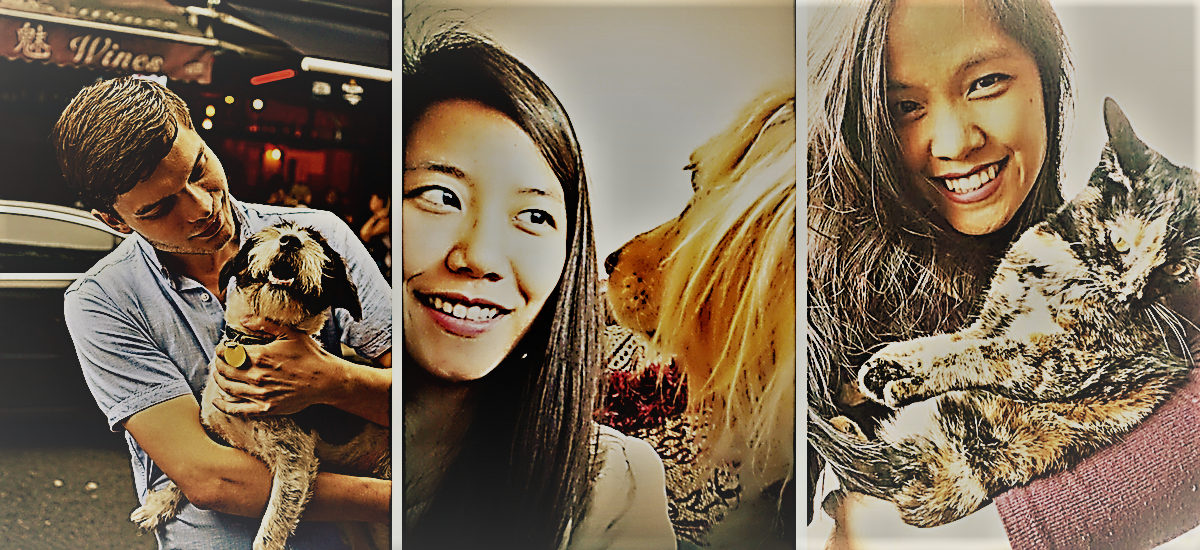 How do you recruit your sitters?
How do you recruit your sitters?
Erin: We don’t want people who do it only for money. The main driving factor should be their genuine passion for animals. You recognize straight away the right person: they have so many stories to tell about their cats and dogs. They say all the time: “my dog” or “my cat” and lay out all the pictures. We meet every candidate in person, and if they get a job, they go through the training.
Elsa: Some expats are in Shanghai for a short period, so they didn’t relocate with their pets. They work for us to be closer to animals and earn some extra money. These are usually good candidates. We put the job advert in Smart Shanghai and spread the word, searching for animal lovers. Everyone who wants to become our sitter needs to fill out the application first. We also ask for their photos with pets.
Erin: If someone cannot provide a picture it’s a huge warning flag.
Elsa: One candidate said that he had a lot of experience with cats and dogs, but he could only provide a picture with a cow. That was a no!
Tell us about everyday life at Spare Leash.
Elsa: We work like a dating app; getting pets’ owners agreements and pairing them up with the right sitter. We sometimes use the co-working office at WeWork, or we work at Baker and Spice café at Anfu Lu where we meet many people with their dogs. We chat with them and sometimes they even become our clients. We organize many events. For example, we had a charity Thanksgiving where people could drop the stuff like beddings or pet food that went to two shelters in Shanghai. One shelter is fully outside and they have over hundred dogs. It was perfect timing with the winter coming up and shelters in need of blankets. We also had a happy hour. It was a cold day, but many people came. Our next event will be a training for dog owners and sitters. We want our clients and sitters to interact. Now we have a team of hundred seventy sitters which is a tremendous growth. Last summer we only had sixty of them.
When you first started, you had fifteen sitters and three clients and grew to hundred seventy sitters and three hundred customers in less than a year. You were also awarded by Time Out Love Shanghai for Lifestyle Service of the Year. What is the secret of your success?
Elsa: Spare Leash sitters ensure individual care as well as daily pictures and updates.
Erin: Instead of putting their animal into a pet hotel, our clients prefer their pets looked after in the house, by someone who is a true animal lover. The main problem of expats pets’ owners in Shanghai is finding someone to care for their animals while they travel. It’s also a key barrier for expats who want to adopt an animal in Shanghai. We fixed it.
Elsa: Spare Leash enabled me to adopt my dog. Now I can travel knowing that someone reliable will look after my dog while I’m away. The “no cage” aspect is paramount to us. In Sweden, we don’t have pet shops and pet hotels with caged animals at all. Here in China, shops with caged animals are everywhere.
I looked at the prices in Shanghai, and in many cases, it’s less expensive to hire Spare Leash than to put the pet into a pet hotel. Also, you are a real lifesaver for cat owners who love to travel. For most cats, it’s much less stressful to be looked after at their house.
Erin: Our sitters also give their full attention to pets. It’s not unusual that they cry when the owner is back and they must part with an animal. Our sitter’s boyfriend just called me and said: “Anita cannot work for Spare Leash anymore.” I asked: “What did we do to her?” He said: “The owner picked the dog two days ago and Anita is still crying.” This is how our sitters get attached to the dogs. They treat these animals as if they were their own. We want clients to be worry- free because their dog will be preoccupied with a sitter instead of staring at the window, waiting for the owner to come back.
Elsa: I once boarded a dog who used to sleep in their owner’s bed. Therefore, at my house, he was also allowed to sleep on the pillow next to me. That’s what he does at home, so I didn’t say no. He loved it and got attached to me. The family was super happy, too. Photos are also very important to us. When I leave my dog with someone else, I want to receive at least three pictures a day, and our clients can expect the same.
Aside from Spare Leash, you both rescue animals as well.
Erin: It started a long time ago before college. I was rescuing, adopting and rehoming animals. Coming to Shanghai from Michigan I saw way more stray animals. I felt something had to be done about it, so I joined a couple of groups that rescued animals in Shanghai. With the power of WeChat, we rescue animals, make them safe, and find them a comfortable home.
Elsa: I adopted my dog, Betsy, from Rose. I was going to foster, but I ended up adopting her. Now I’m getting a new foster, Luna, this week.
Erin: It’s 24/7. You surround yourself with groups of people who post updates about animals in need on WeChat and whoever is close will go and rescue the animal. There is a bunch of groups: Best Friends China, JAR, People for Pets, and Rose’s Rescue. Right now, we are working closely with Rose’s Rescue. She dedicates herself to saving animals. We help donate and fundraise for the vet bills.
How do you fundraise to help animals in need?
Erin: We organize events. In March, we did a Pet Talk and Ride for Rescues event and raised over 2500RMB for Rose’s Rescue. We have another one coming up!
Elsa: The Shanghai pet community is always willing to help animals in need so our events are super fun and it’s a great way to give back.
Which social media do you use?
Erin: WeChat. It’s right there in front of you; you can request the phone number, the resume of potential adopter and ask basic questions. Our friend went to Hangzhou where he found a dog that was almost dying and asked us what to do. He ended up keeping the dog and recently sent us “before” and “after” pictures- he loves his dog. It’s just one of the many stories. We help to facilitate adoptions for dogs but also a lot of cats.
Erin: We also educate people: “If you find a stray animal that needs helps this is what to do. First, you take them to the vet. Taking a picture and walking away is not helpful.”
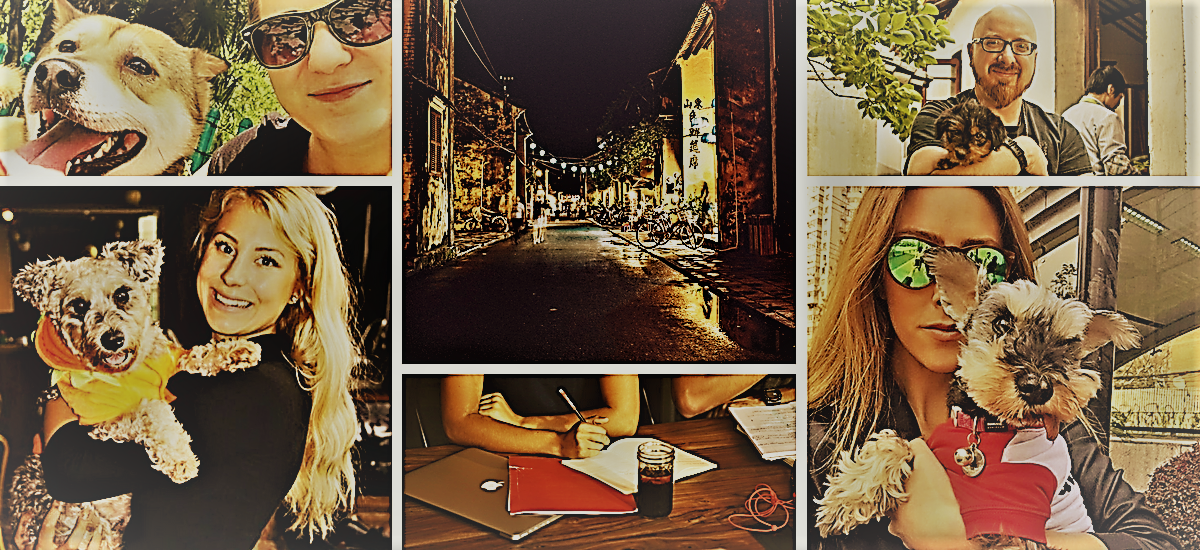 I’m so thrilled to hear all these stories. Let me ask you the last question, what’s your advice for other expats wanting to start a business?
I’m so thrilled to hear all these stories. Let me ask you the last question, what’s your advice for other expats wanting to start a business?
Elsa: It takes good planning. My tutor says “put the idea in the fridge”. Let it chill a little bit, think about it, open your fridge sometimes and look at it. In the meantime, surround yourself with the right people, go for meetings about start-ups. Find someone who has the skills that you don’t have.
Erin: Some people do that for three years while working full time. I can only say: DO IT. When Elsa came with her idea, I said: “when do we start?” Don’t just have the idea, create it.
Interested in learning more about Spare Leash? Contact them on www.spareleash.com
Pictures: Spare Leash and Canva
]]>
Yolanda sees herself as a preservationist of humanity’s current lifestyle and being. Her vision is to capture this generation’s contemporary environment for future generations.
Yolanda, when did you discover your passion for photography?
When I was a little kid my mother gave me a camera to take some pictures while I traveled with my brother on our own. After we would come home, my parents would develop the pictures and I would have the memories from the trip. The preservation of my experiences gave me the ability to share with my parents what I experienced, seen, and done. I did not have an outlet for my deep need for sharing, but taking pictures gave me the ability to preserve something not only from my life but also from others’ lives. It became a way to communicate. For my eighteenth birthday, my father surprisingly gave me a proper camera. I started to play around with it. When I was nineteen I needed to decide what I want to study after high school. I looked at architecture, psychology, and photography and then tested all of them during my summer vacation.
How did you test them?
In Germany, we have something called Volkshochschule which is a summer school/ workshop program. I participated in one photography workshop. Another workshop was about architecture. I also interviewed an architect and I asked him about his job.
He said: “There are so many people studying architecture nowadays that you will end up behind IKEA’s desk selling furniture.” This, plus my fear of math contributed to my decision to choose photography rather than architecture. I thought this would give me the ability to meet, communicate and work closely together with people, which is what a psychologist also does… However, photography gives access to a variety of different topics and fields I can work in. My father had ten or fifteen jobs in his life. I thought photography might give me the option to travel, see different cultures, work with different people and update myself to fulfill my need of learning and steady creative and personal development.’
Your father had so many jobs throughout his life. You picked up one job, which has so many jobs in it.
Exactly. There are so many fields I can work in. It took me some time to figure out my skills set in photography. The studying aspect made me really confused about which field of photography I want to work. I’ve failed a lot. Every single semester I had to redo my work two or three times. Only interior photography was OK. And there … we are coming back to architecture.
What are the other fields?
Advertising, products, … Interestingly now, in my personal work I go more and more into portrait photography, as it comes very natural and easy for me to connect with people. People trust me. However my need for straight lines and typographical work as well as my picture language initially worked better with interior and architecture. So I focused on that, and this is how I make my living right now. But by word of mouth, I have focused more and more on portrait photography, business portrait, and so on.
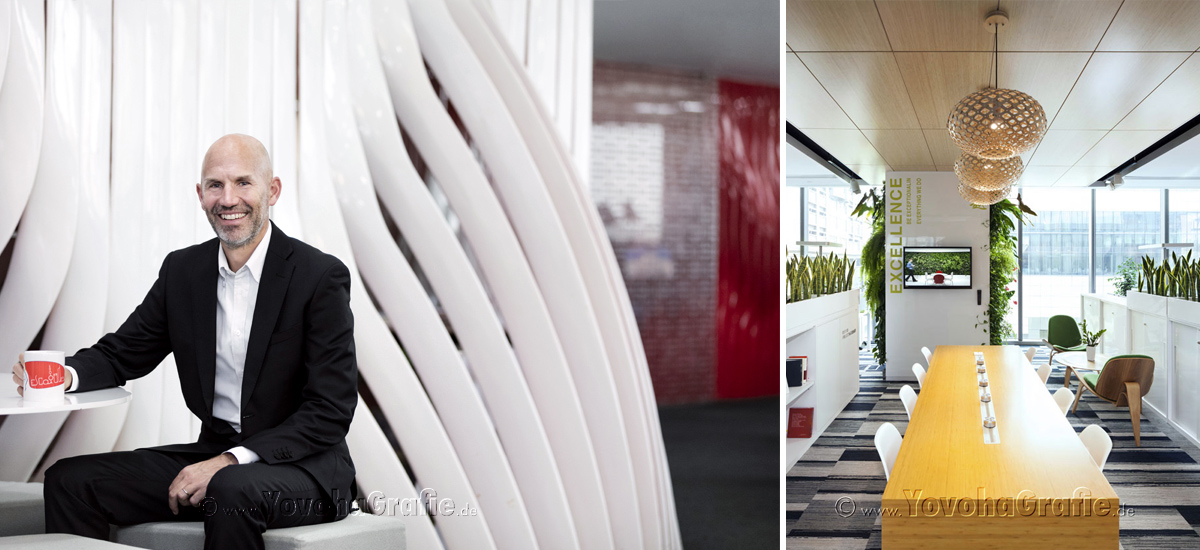
How do you add value at your work?
When I look from now to the end of my life… My goal is to create work which is valuable to society. In the sense that I preserve things or I immortalize people for future generations. There is one work which got already a little bit of social value. It’s called Karlstreet and The People of Karlstreet. It is in the rural, coal-mining area of Germany. I documented it for the first time in 2005. I took the pictures of duplex houses from the outside, then I went inside. I took portraits of people in front of their doors and inside their living rooms. I did this ten years ago, only on one street. I literally went from door to door to knock and ask people if I can take their pictures in their living rooms. The majority of people trusted me very quickly and let me into their homes. I should use that skill more often. Anyway, I did it in 2005 and exactly ten years later I did the whole thing again. I went back to the same street, I took the pictures of the houses and the families in it. Some families have changed; some people died. So you have this kind of documentation and I will go on with it in my life. It was exhibited several times. People found it interesting and that is the thing that fulfilled me the most. That is something I have done in my life which will stay here when I go. It has a value for the generations to remember the past.
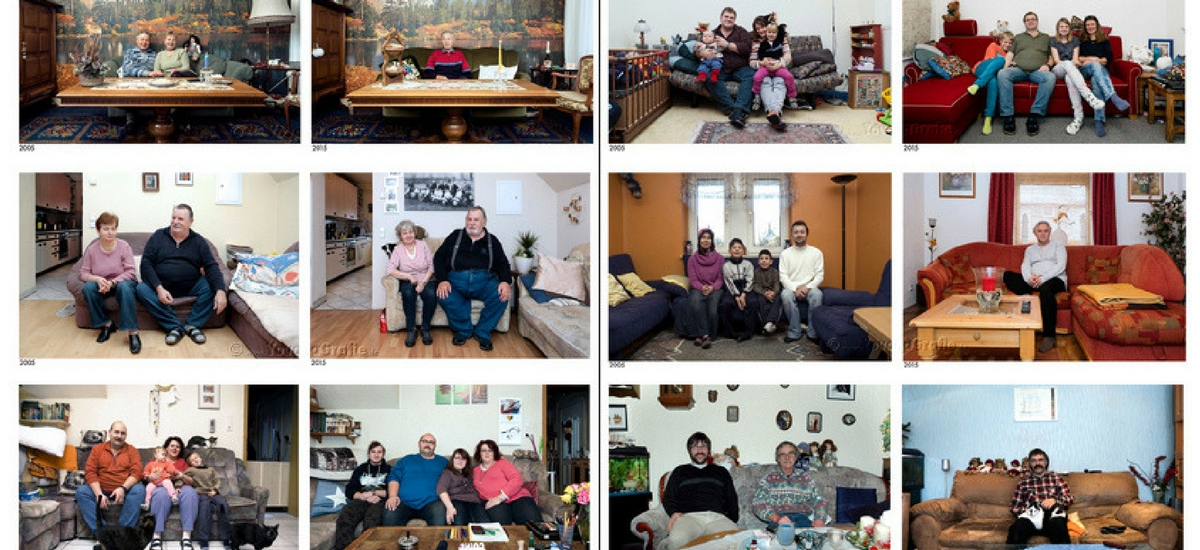
What is the story behind your move to China?
In 2005, my university, University of Applied Science Dortmund, had an exchange workshop – with Chinese students from Tsing Hua University Beijing, in Germany. We worked and lived together for three weeks – thirteen Chinese and thirteen German students. We lived in the coal mining area. This is actually where I developed my Karlstreet project. We were exchanging ideas and lifestyle. After that, I took Chinese classes at the university. I’ve finished my ground studies and I was able to get a sponsorship from the government to do an exchange study program. My contacts in Beijing helped me to find a university. I went to China for one year. Beijing appeared dusty and gray, and the traffic there was so loud… but during my semester vacations, I went traveling around China. In one month I went to six provinces and eight cities. I mostly stayed at my Chinese classmates’ homes or their friends’ homes. My Chinese got better and after I came back, I felt home in Beijing. In summary, what I experienced during that year were very welcoming, warmhearted, open and positive people.
After I came to China I got the feeling that I do have an advantage due to my education. I was not very convinced of my skills and environment in Germany because there is a lot of competition. There are many, well-educated photographers, and there are not so many companies who can hire them. The creative industry in Germany uses a lot internship and student workers who supply cheap photography work. I was a little bit disillusioned about my future in Germany. Coming to China and having this positivity, a bit more peace and an educational advantage gave me a lot of hope and energy to say I might start here. When I graduated from University of Applied Science Dortmund, Beijing Blue was my graduation project.
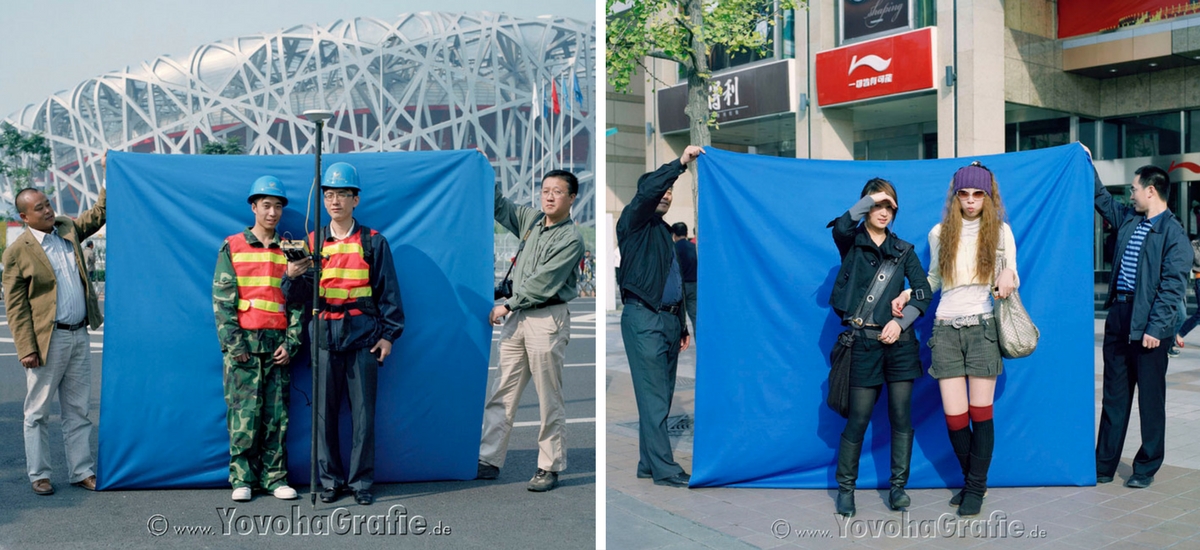
Tell me about Beijing Blue.
After I came back from the exchange year in China in 2007, the Beijing Olympics were on the move. At that time media were portraying China in a very negative light. I wanted to fight for China and all the nice and welcoming Chinese I met. There was no contemporary portrait of the so-called “Chinese”. I decided to incorporate that into my work to show Chinese people and China. To show something else than just bad press. I think there are not enough people showing positive aspects of China’s development. So I did Beijing Blue. I walked around the streets of Beijing with my camera and a blue background. I randomly asked people who I’d find interesting if I can take their pictures. I also had to convince two others passerby to hold the blue background for them. The other two people didn’t know I would also take photos of them, and therefore, they didn’t stage themselves. Sometimes they were smoking, looking around, talking on their mobiles … Or they were thinking … maybe I was going to take a picture of them as well, so they would hide behind the background. With my work, I connected random people on the street. Connections that are uncommon to Chinese.
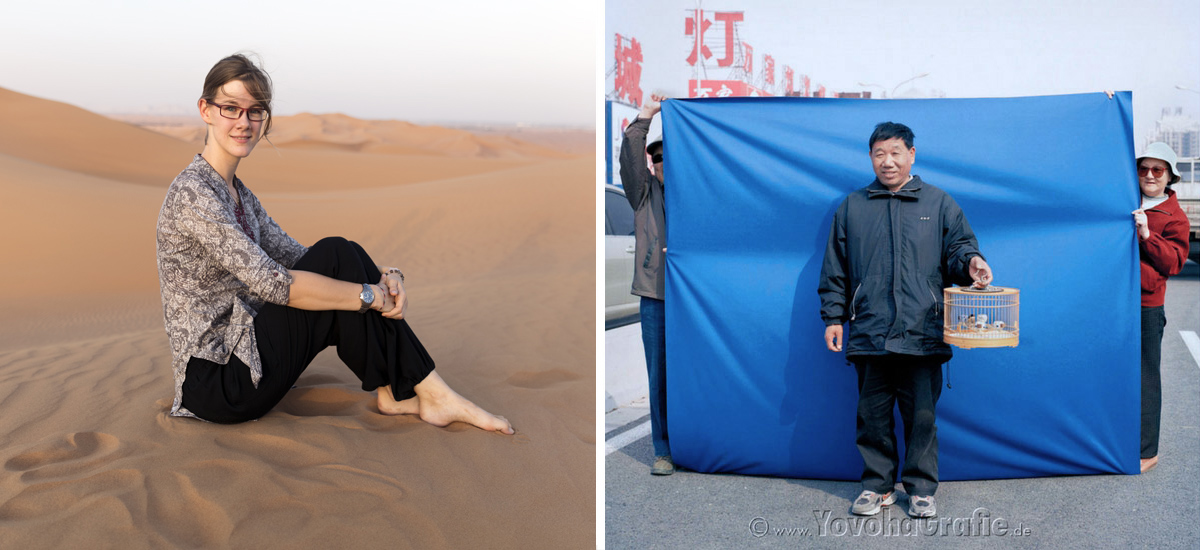
I think we should connect more with people surrounding us. Even now in Shanghai, I talk with common people, the flower lady at the corner… A couple who is selling their xiao long bao. They are there, working every day in a 5sqm shop. A merchant, who is preparing a barbecue on the street every night … I know they are from the Hunan province. They work in Shanghai and their son is back home. Their son is getting very angry when they leave him again. He cannot understand why they are away for the whole year. They work really hard to send a little bit of money back home.

What was a deciding moment about whether you will be living and working in Germany or in China?
In 2010 I was the official press photographer of the German Pavilion during Shanghai Expo. I had that job for nine months which was a huge opportunity for me. Directly after graduating I had a fixed job and a fixed monthly income. It enabled me to build a network in Shanghai. After the Expo, I went back to Germany for four months. I was crying and said to myself “What am I doing here?”. For me, after doing this exchange in 2006, it was clear that I wanted to go for it in China. In Germany, I would struggle for ten years in order to have a normal life and a client base as a photographer. I managed to get to this point after three years in China.
How do you deal with a flexibility of your work?
When you go to work or you have a company, people wait for you, so you need to be reliable for these people. I’m a freelancer. If I don’t do my work, I won’t be able to survive. I need discipline towards myself and towards my drives. I get up at 8 am, sometimes earlier. It’s a natural time for me to get up, but still you need this discipline as nobody is calling you out and you could just sleep until 11…. You need to accomplish all tasks related to business even if you maybe don’t like them, for example, admin work. To have that discipline is an important part of being successful.
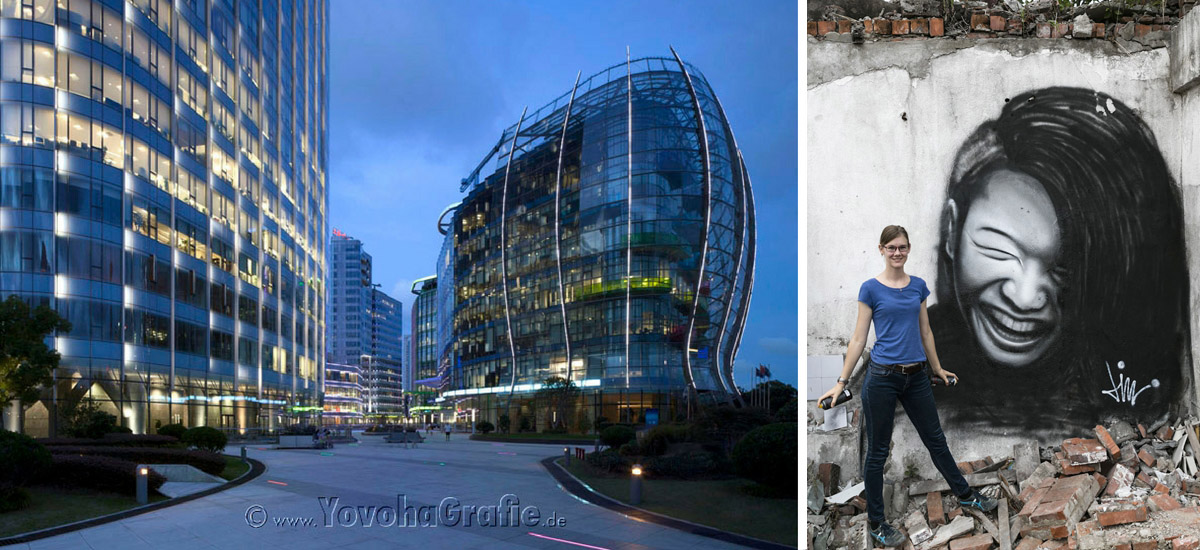
What is success for you?
For me, being successful means to a certain point being able to choose what I want to do and when I want to do it. Don’t misunderstand me, that has certainly nothing to do with being lazy and only picking cherries from the cake. Of course, I have to take jobs I might not favor. However, I have this incredible luxury of saying “no” to certain jobs.
Photography for me comes out of a deep passion. It fulfills and balances me. When I can’t take pictures for a while, I get uneasy and tensed. I am deeply thankful and fortunate to have managed to find what I am passionate about. Which lets me get through low or highly stressful times. I can choose to put my energy and time into more valuable projects.
This morning I posted a picture of me sitting on my bed with the sun coming through the window, shining over my feet and I was thinking: It’s so enjoyable to not have to run to work and have the same schedule everyday and do the same tasks every day. How luxurious it is to be able to work once in a while from a café or from home. To not have someone telling me how I should work. What is success to me? I think success is very much connected to one’s definition of luxury. If you think luxury has only to do with materialistic and monetary assets, I am not successful by this definition. For me, luxury and therefore success have to do with freedom. To be successful is to have choice. To be able to create and re-create myself. To a certain point, I have reached that level.
Thank you for inspiring us!
Pictures: Yolanda vom Hagen
Interested to learn more about Yolanda? You can contact her here:
Website: www.yovohagrafie.de
Behance: https://www.behance.net/mail342742d9
LinkedIn: https://www.linkedin.com/in/yolanda-vom-hagen-6b63702a/en
Mail: info@yovohagrafie.de
WeChat: Yovohagrafie
]]>Too difficult to answer?
How about this one: what do all the above have in common PLUS establishing an internet shop, volunteering in Africa and running photography workshops – all at the same time?
As a career coach, I might be slightly more attuned to these ideas I hear literally every day – from my friends, acquaintances, and clients. What is this all about, you might ask. Is it about who has the best idea? Who is the most creative? Maybe who can execute something and bring it to life? Or perhaps about picking and focusing on just one idea? I can see something on a much deeper level: people desperately long to add value to the world and be truly useful to others. When others around me say ‘I want to open a vegan bed and breakfast’ or ‘I want to create a job search app’ or ’I want to be a life coach,’ I hear “I want to add value.” They want to change the world – or at least help improve parts of others’ lives. At the same time, we would like to use our unique talents, be creative, have fun, and earn for living (except, of course volunteering). Earning while doing something valuable and enjoyable seems to be the trickiest part. I think many of us still believe that they can not earn well while doing something they love. Others think they first have to sort out their own careers and financial security and only THEN they can start adding value and changing the world.
Is adding value and helping others a luxury you can only afford after you yourself become established and successful?
To the some extent, yes, especially if you are living and working abroad. We all know the Maslow pyramid of basic needs. If your priority is an international career, the very first basic needs are the working visa, financial security, and simply making it in another country. However, some of us wait for too long. I hear you saying ‘let me get this promotion, let me save more money, and THEN I will go out and realise my dreams of being helpful to others.’ You don’t have to wait that long or wait for ideal circumstances to truly start adding value.
We would like to demonstrate to you that this is realistic and possibly quicker than you think. That is why we are starting the Adding Value Series on this Coachify blog. During the next months, you will find here stories of people like yourself who help to make a world a better place in an extraoridinary way. You will read case studies, interviews and tips on:
– how to fully transition your career so that you finally know your work truly contributes to the world
– how to add voluntering to your busy life abroad
– how to organise your creative ideas and pick the one you would like to pursue
This is exciting, isn’t it!? If you want to be a part of it, and don’t miss out on all the know-how, sign up for our newsletter HERE.
If you cannot wait to start contributing to the world but unsure where to start, you can contact me HERE for a free, one-on-one strategy call. There is a limited number of available time slots so hurry up. The biggest risk you take is learning something new about yourself and learning to use your unique talents in a meaningful way.
We are looking forward to learning and exploring the Adding Value stories with you. At the very least, it will be fun and hopefully give you a bit of inspiration along the way.
Written by Beata Dziedzic
Picture: Canva
]]>
I looked at the regular local job websites here in Prague on a daily basis and nothing truly caught my eye – then I was directed to an organization called Internations which is a great site to meet other expats and network. I decided to look at its job forum and there were a few jobs I was quite interested in, including the one I have now. Within this job description, there was one thing I didn’t have at all, “french speaker,” but I thought why not apply anyway? I had nothing to lose. So I did – I heard nothing for a few weeks but then I was contacted by my current boss. She had asked the organization if french was truly needed for this role and in the end, they agreed that it was only nice to have. She immediately pulled my CV and called me – I got the job that day. Lesson: you just never know.
I say all of this to encourage you to:
- Keep going even if things seem fuzzy or you have lost sight of the vision – stay hopeful!
- Apply for a job even if you don’t have EVERYTHING on their wish list – it truly may not matter in the end and it could change your whole direction
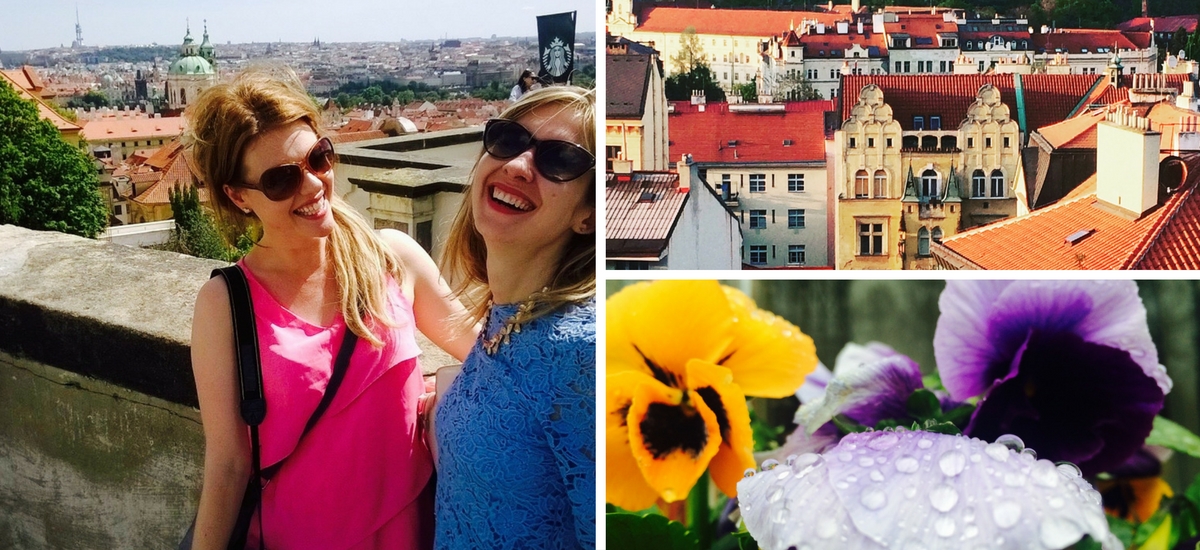 Talk to people like Coachify who can help direct and encourage you – sometimes friends and family have your best intentions but they are afraid that you will get hurt so they might offer more discouragement than you need . Trust yourself and your intuition.
Talk to people like Coachify who can help direct and encourage you – sometimes friends and family have your best intentions but they are afraid that you will get hurt so they might offer more discouragement than you need . Trust yourself and your intuition.
So here on I am…it is the first day on the new job today. I ended up working both jobs in June so that was a busy month but now I am in full gear with this new position. I am not writing this to tell you that the perfect job landed in my lap – but it is the perfect next step. I do struggle because I want to do so many things! My mind literally changes all of the time in terms of career direction (read Beata’s article about ‘the grass is always greener’ HERE – very me). But I am learning that having that type of mindset is okay and I can actually use that to my advantage – especially this day in age where job changes are actually accepted and expected.
On a personal note, I am still in a long distance relationship – and it’s thriving. We have been together for close to ten months and have seen one another on average twice per month. Not too bad – there are definitely hard moments but we have chosen this and we DAILY choose one another. That’s it. We make the moments count and when we are together, we just live life. And the best part? We get to build our friendship, which we both value the most for the long haul. One vision that is becoming clearer – building enough skill sets to work location independent so when the timing is right, the transition to London (or somewhere new together) will be a lot easier… Stay tuned.
Thanks for journeying with me as always! I always love that you are here with me.
Heather
]]>I have put together some tips and lessons learnt from my own experiences and from observing people similar to me. Yes, I am a change loving person too. After countless job and place changes myself, I can say that I somehow learnt to manage it in the way that it doesn’t affect my career development and happiness. I have also learned that changing everything doesn’t have to be the best option.
“You have to follow your passion”. “Do what you love”. – We hear that all the time, and while it’s not easy, it works especially for change loving people. On the other hand, a change loving person who is not passionate or worse, bored at work will not stick around for long. There is so much discussion around about job hopping. For me, a “jumpy’’ CV doesn’t show the whole picture. For example, I wouldn’t mind to hire a “job hopper” if I knew the role I have on offer is a perfect match for this person.
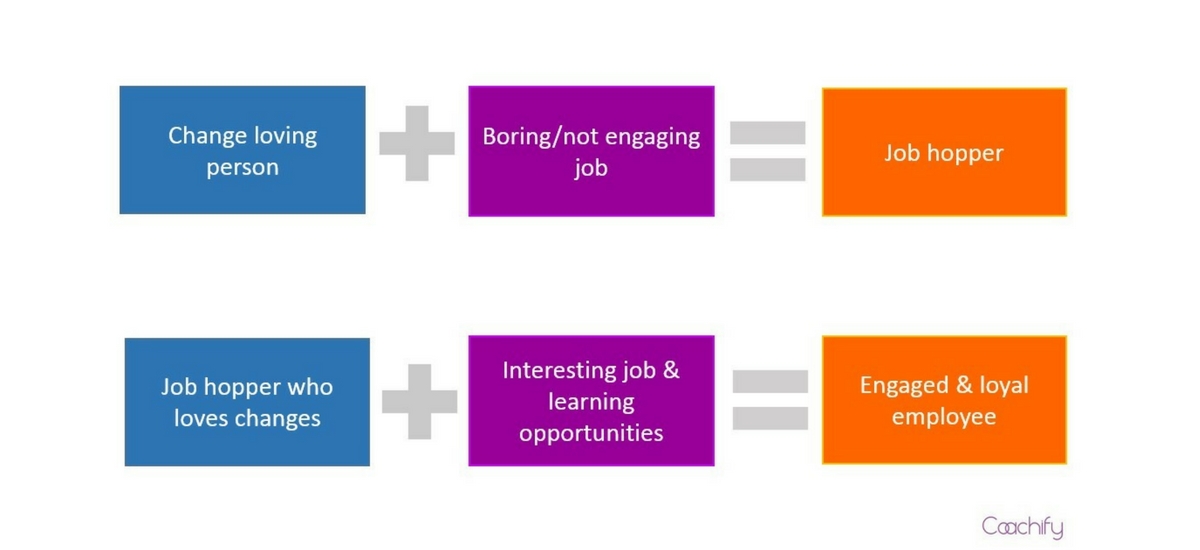 What you need to remember from this mini hiring guide, is that if you are a change loving person and not passionate about your role, it will be more painful for you (than for other people) to stay in a job for a longer period of time. If you do stay, however, (or shall I say that you force yourself to stay) it could be more stressful for you than for others and can have serious effects on your health.
What you need to remember from this mini hiring guide, is that if you are a change loving person and not passionate about your role, it will be more painful for you (than for other people) to stay in a job for a longer period of time. If you do stay, however, (or shall I say that you force yourself to stay) it could be more stressful for you than for others and can have serious effects on your health.
Appreciate where you are now. As you might know, gratefulness is the key to happiness. I remember when I first moved to London I loved it, but after some time, I had images of myself working somewhere sunny like Australia, Middle East or Asia – I just couldn’t stop thinking about it. These fantasies were becoming stronger after every New Year and I think it had something to do with not the exactly fabulous UK winters. When I had the opportunity to move to Beijing, it wasn’t a very hard decision – it had nothing to do with the image of spending time on the beach after work but it had two unbeatable advantages – it was new and it was different. Although China was a perfect move career wise, I realized I was missing London and the European life style. I still enjoyed my life in China, but also I was impatiently anticipating my next relocation. When I moved to Prague, I realized after some time that I was really missing … Asia. Something was wrong and I knew I had to deal with it, otherwise my life will be just short-term moments of happiness of before and after relocation and longing to be somewhere else in between. I don’t even have to mention that I had the time of my life during my last months in Beijing – when I knew I was going to leave that place. A good hint for what was coming. I said to myself that I don’t want to repeat this mistake and fall in love with Prague after it’s too late. Here, imagination comes handy. I imagined that I am relocating again – what I will I miss from Prague? What do I love here that won’t be easy to find somewhere else? Some of the things on my list are speaking Czech, tramways, Ovocný Světozor (a Czech patisserie), kávička (a special Czech coffee that has only 30% of coffee in it), and the fact Czech people love animals and dogs are omnipresent wherever you go. I will also miss my amazingly supportive Czech and Expat friends. If you become restless, but are not ready to leave your current country, creating a list of what you would miss works wonders. Just make sure that you think or even talk about it every day and after some time, it will help you to become more grounded and present in the moment, instead of living in the past and future.
Everything is possible these days. If you dream day and night about travelling, start following on Instagram those who do it for living. It won’t happen overnight, but you could find your niche and join this tribe who earns while travelling. All you need is a dose of imagination, curiosity, and an open mind. For sure you have them all.
Speaking of your niche, I can’t stop refrain myself from saying that everyone is different and you need to find what works for you. If for any reasons you cannot not go fully location independent, there is so much of a middle ground waiting for you to be discovered. In my case I went for a “blended” location independence. I relocate on average every three years and I travel almost every month, which is a good mix of some sort of stability and constant change. I am able to manage my workload in between travels, but if needed, I simply take my laptop with me or I use my phone. Nowadays, the lack of internet in some places is actually a luxury and I can use this time for creative thinking, writing and planning.
How about you? Are you a change loving person? Where are you relocating next?
Beata Dziedzic
]]>I moved to Prague from L.A. and I am here to tell you that there is more to this “Srdce Evropa” (Heart of Europe) than meets the eye. There is a magical quality of this city that you feel. Stop somewhere for a nice view even for a short time and look not only with your eyes, but recognize what you feel. We need this once in a while because busy schedules only allow us to check time as we do this and that. Appreciating these simpler things of life along the way makes the journey through any walk or task much more than it is. When I have time, I still go to the city center to walk like when I was the tourist gazing at the Charles Bridge, the castle or the Letna beer garden where you have a breath-taking view of the city below. My favorite time is at night when the lights make the scene ethereal.
- CZECH PEOPLE
Czechs are very bright and well educated and strive to be better by learning, reading or creating. When at work they truly focus on the task before them, but when work is over, they know how to RELAX or play. That’s good balance. I have always said we are not robots – we need a break once in a while so we can get back to work refreshed to do what we must. Yes, they can be found very busy in the city, but they still have an inner passion about life and good ethic. First, and what is most important to make me happy where I live is the people. Aren’t people who we have our interactions with throughout life rather than just food and what we see around us? Never mind all the sunshine, gorgeous scenery or food and drink to enjoy. The people must be good hearted and mean well. I found this here. Some have said Czechs look unfriendly, but they aren’t actually. If you talk to them respectfully, you find they respond with polite willingness and help if you need anything. This was a pleasant culture shock for me. I had long forgotten what it was like to live among people who are like this. I love living here.
2. VEGAN COMMUNITY
The second and quite surprising discovery for me is the strong vegan vibe here. I previously thought this would be the land of mostly meat and potatoes and life would be a search for what I could eat here, but not so! There are many vegan restaurants around the city and when the weather is nice, there are vegan, vegetarian and raw vegan festivals almost every month! Let me clarify that I do not push this lifestyle of eating on anyone. That’s not what it is about. You have to want this yourself for whatever your own reasons are. It can be out of compassion for animals who are abused and slaughtered or maybe you have health issues that get better if you eat like this. Regardless, I keep finding meat eaters who go to vegan places to eat simply because they like some of the dishes. Most Czechs passion for choosing this plant based diet is because of their concern for animals whereas where I came from it’s for health reasons and healthy living. There are also athletes and body builders here who band together proud of their achievements to prove we can still build strong bodies on this plant based diet. They all mainly want to do the right thing.
3. HISTORY
Third, is that this city has been one where people centuries ago have come for inspiration or to collaborate with others in their creation and achievements. There were scientists, authors, musicians and artists in many different arts who became greats who lived here or at least spent some time in this city. There is still a modern day version of this that has made this such an international city that I have met people from many more countries around the world than I have ever met in my life. Most other big cities “shout” out to the world about themselves, but the refined Czechs have that quiet self confidence in their accomplishments so you just don’t hear about it as much, but it is there. If you live here, that desire and inspiration will rub off on you to do your own great thing.
4. PLENTY OF FURRY LOVE
All this talk about the people is great, but fourth on my list is that furry friends are well loved here and enjoy being a part of the family. This is a dog friendly city where dogs are welcomed if they behave well on the metros with their muzzles on or in most restaurants and generally walking around town. This discovery amazed me by how well trained and behaved their dogs are. They are also very loyal to their owners! No, don’t worry, you don’t see dog poo everywhere because Czechs like cleanliness. I have seen all kinds of breeds from Chihuahuas and the fluffy haired small breeds to Greyhounds, German Shepherds, Great Danes, Rhodesian Ridgebacks and one really huge dog I have seen around town before that other people have talked about is a Wolfhound dog. I love the bigger dogs! They are amusing to watch because it’s more like another person than a pet.
OK, there is the other much loved furry pet that I can’t forget to mention – cats! With cats living indoors, you don’t realize they are here, but you will eventually meet many who love and own them throughout the city where allowed. If you like to play with cats, but can’t own them, there are many cat cafes around here where you can enjoy your coffee or tea in a nice little place where there are about 7 to 10 cats walking around for you to freely snap pictures of or to enjoy petting. I’m mildly allergic to cats which is one reason I can’t own one, but just a coffee with a friend in one of these places is fine for me. One café has a cat named Stella who came to sit beside me on my purse! I guess she knew we just “had” to hang out together for having the same name!
5. SEASONS
Reason number five is that in Spring and Summer I happily open my windows to gorgeously sunny mornings and I mean gorgeous!! There is such a wide blue sky with that bright sunshine greeting me to bring my first smile to start my day. You know how the energy of the sunshine gives us that awakened happiness? There are plenty of sunny days to enjoy and people truly do. I still love the change of seasons though. Winters aren’t that severe because this city doesn’t get much snow. If any, it’s so little that it’s not a big deal. This city goes through all the seasons so it you have fun playing with styles for warm and cold temperatures.
These only name a few of the good things that money can’t buy. Just add in the usual things you need to do like work, home, friends, family and you have Prague. The most important reason is because of the people. Everything else is only secondary.
Stella Yin
Pictures: Arief Munandar
Are you also relocating to Prague? Click HERE to find out more about Czech people.
]]>
